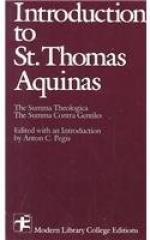
|
| Name: _________________________ | Period: ___________________ |
This quiz consists of 5 multiple choice and 5 short answer questions through Chapter 23, Questions CIX, CXII, Grace.
Multiple Choice Questions
1. Angels are often images that represent what?
(a) Humanity.
(b) Individuals.
(c) God.
(d) Abstract concepts.
2. How does Aquinas define providence?
(a) A city in Rhode Island.
(b) The ability of man to govern the universe.
(c) The exemplar of things ordered towards an end.
(d) The desires of man.
3. Thanks to ______________, he becomes aware of some ancient thinkers outside of Scriptures as well as inside them.
(a) Aquinas' intelligence.
(b) Aquinas' friends.
(c) Aquinas' family.
(d) Aquinas' education.
4. One will is immediate and the rest may be the same or the guidance of ___________ which governs the events.
(a) Several higher wills.
(b) A lower will.
(c) A special will.
(d) Some higher will.
5. God manifests as _____________ within humanity.
(a) Goodness.
(b) Jesus.
(c) Fear.
(d) Light.
Short Answer Questions
1. How many articles are there for Question LXII: The Theological Virtues?
2. In Question 84: How the Soul While United to the Body Understands Corporeal Things Beneath It in Eight Articles, Aquinas gets into _____________ historiography of the quest for knowledge and certainty regarding the truth.
3. How many articles are there for Question XCIII: The Eternal Law?
4. Action is used as what?
5. What do some think regarding whether one person can understand one and the same thing better than another can?
|
This section contains 259 words (approx. 1 page at 300 words per page) |

|




